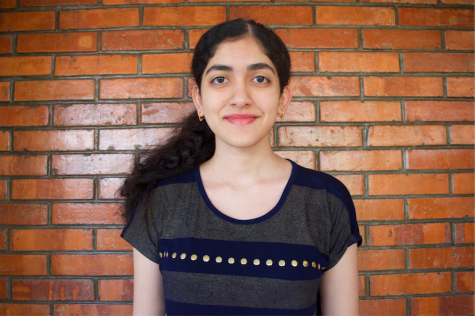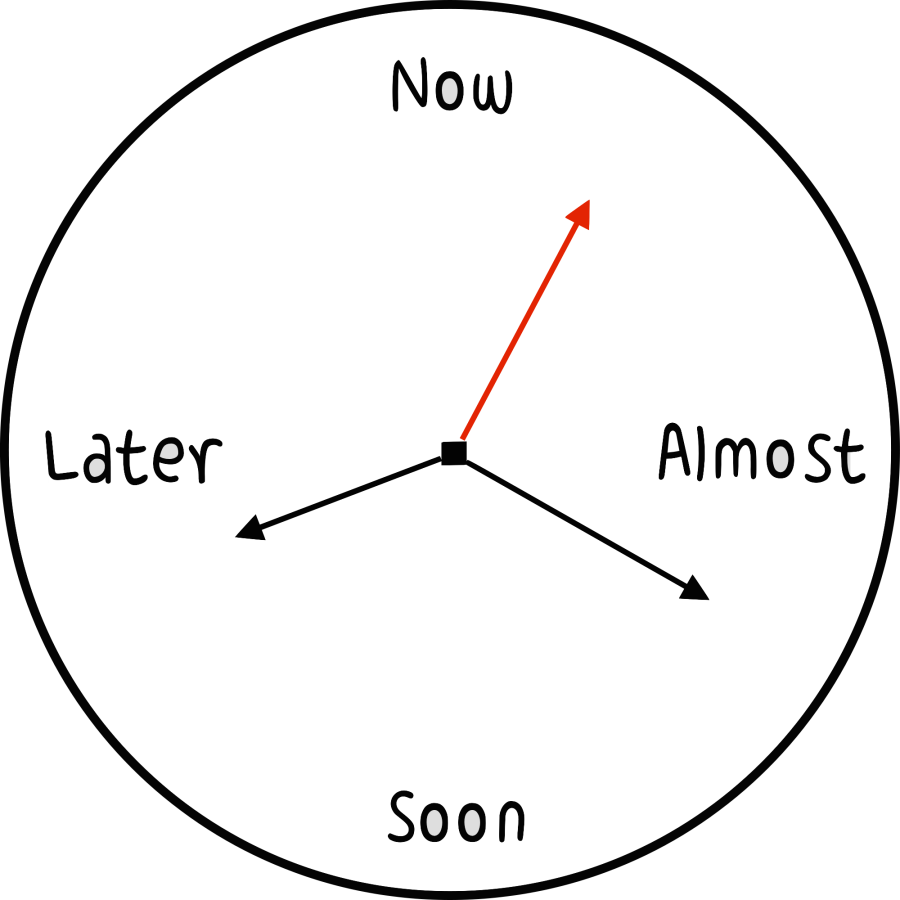Productive Procrastination
If you consider yourself to be a master in the art of procrastination, then you have come to the right place! Let’s face it, all of us procrastinate in our lives. For this reason, I have come to the conclusion that procrastination is a necessary evil, at least to the majority of us.
I interviewed a few people in the high school, asking them about their thoughts on procrastination as a necessary evil. This is what they said:
Yejin On (Grade 11): “Procrastination is a sweet devil to me. I know that it is an easy route to waste my time, but I need it sometimes to escape from reality…(*cough cough*) IB life.”
Jack Conway (Grade 11): “Well, it is quite clearly an evil. I spend far too much time bemoaning my inability to sit down and get things done, and, while I think about the tasks that I am not doing, they pile up until they become so overwhelming that I resolve my problems in the most effective way possible: going to sleep and putting them off until tomorrow. So, it is clearly not a pleasant phenomenon. Nevertheless, it is a necessary one. I don’t remember when I realized that, no matter how determined I am to achieve something, I will always go to sleep with work unfinished. I’ve come to understand that, although I dream of being more efficient, procrastination is simply my subconscious mind’s way of telling me what my conscious mind cannot: enough is enough.”
Luiza Valim (Grade 12): “I think we should all strive not to procrastinate, but at the end of the day we’d be miserable without it.”
Alexandre Jabor (Grade 9): “I have always thought of procrastination as a plague in our productivity. Perhaps the reason that we are so inclined to seek refuge from our homework is because most of it is tedious. And, so, we run off to an endless newsfeed on Facebook. The constant stream of information keeps us updated on virtually everything. And, in a way, both worlds have equal significance to our future. The idea of procrastination in our World Wide Web, is actually a mission to inform ourselves and, through such a definition, procrastination becomes a necessary distraction. The challenge is remains the same, but the situation has now changed. The issue is no longer not ‘procrastinating’, but balancing both worlds.”
Fernando Martins (Grade 10): “Procrastination is a necessary evil because of the many co- curricular activities that Graded students participate in as well as the rigorous academic courses. I have to admit that procrastination, besides being sometimes evil, kind of helps me make some time for myself.”
Neha Jwala (Grade 11): “Procrastination is when I repeat the words ‘I can do it later’ in my head while I surf Buzzfeed, when really I should be working on a 2000 word essay due four days ago. However, it is a necessary evil because it is human nature to be lazy. Besides, how many people actually want to work? Procrastination is the very thing that makes us different from machines, which are automatic and are always working. We need procrastination to be able to distance ourselves from the daunting tasks ahead of us and postpone the misery that comes along with it, even though we all know this results in cramming and pulling all-nighters.”
How, then, can procrastination be considered productive? There are actually several ways to procrastinate efficiently. Instead of procrastinating by staring at a wall and doing absolutely nothing, you can spend time by reading, engaging in meaningful conversations, or playing sports.
It is also a good idea to set a time limit for your procrastination. By this, I mean you should not procrastinate until 11 PM, only to begin working at midnight. While it is very important to take a break and relax from all your work, it is just as equally as important to have self-discipline and get back to work after your breaks.
Another example of productive procrastination is sleep. There are so many students who struggle to get at least eight hours of sleep every night. Working while struggling to keep your eyes open is most likely not going to produce amazing results, and will decrease your productivity. Besides that, sleep deprivation is not good for your health either. According to the Harvard Medical School, insufficient sleep has short term and long term effects on health. Short term effects of sleep deprivation include mood swings, difficulties in learning and retaining information. There can also be an increased risk of serious accidents and injury. For example, driving while feeling drowsy can be fatal. If sleep deprivation has been a long term problem, then it can lead to numerous diseases such as diabetes, obesity, cardiovascular disease, and in some cases, early mortality. If you find yourself in a situation like this, I would suggest you take a power nap. You should find that you will work more productively with a well-rested mind.
The prospect of productive procrastination only works if you set limitations. When you procrastinate too much, you will have lost time you will later regret you hadn’t. If you choose to procrastinate, be sure to keep track of time and resume working. Ask yourself whether staying up until 3 AM due to excessive procrastination is actually worth it.
Sources: Harvard Medical School http://healthysleep.med.harvard.edu/healthy/matters/consequences

In her second year of The Talon, Saniya, a senior, is thrilled to serve as the News Editor. Having been a Features writer previously, she is accustomed...

Lord YeJin strikes back once again in The Talon as the Photographer, the Layout Editor, and the Image Master (finally!). Evicting Gabriel Civita, the former...









